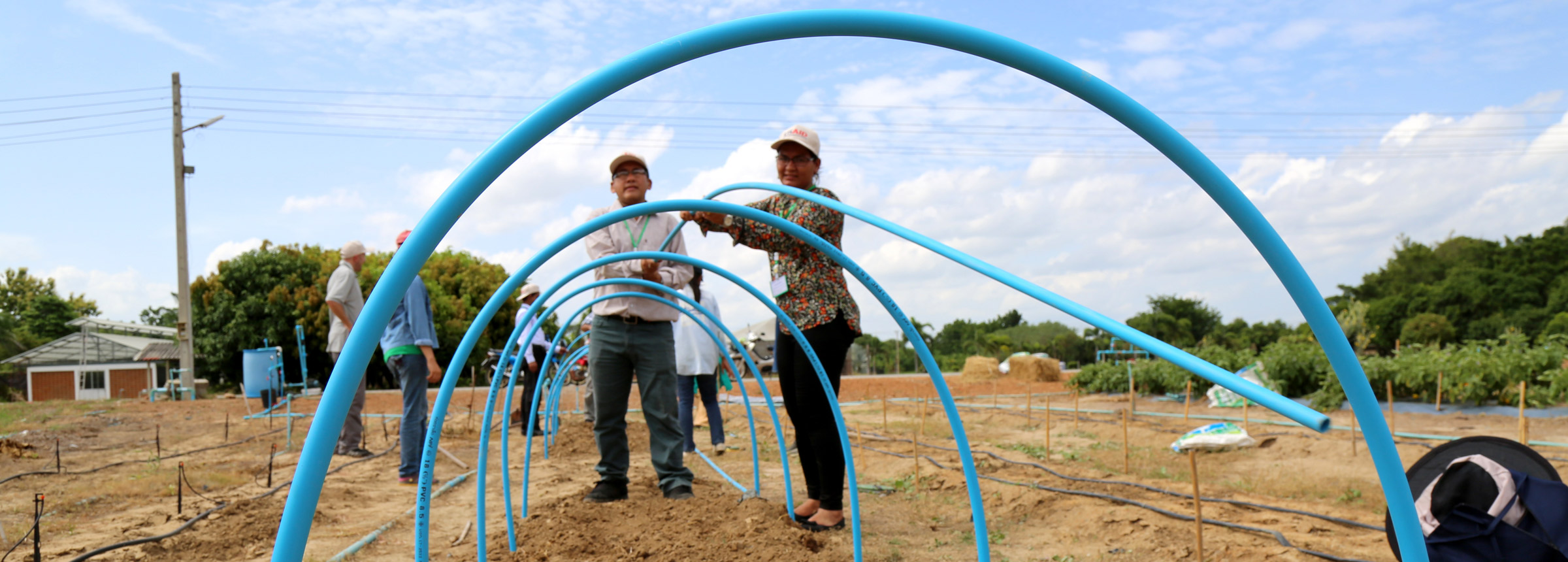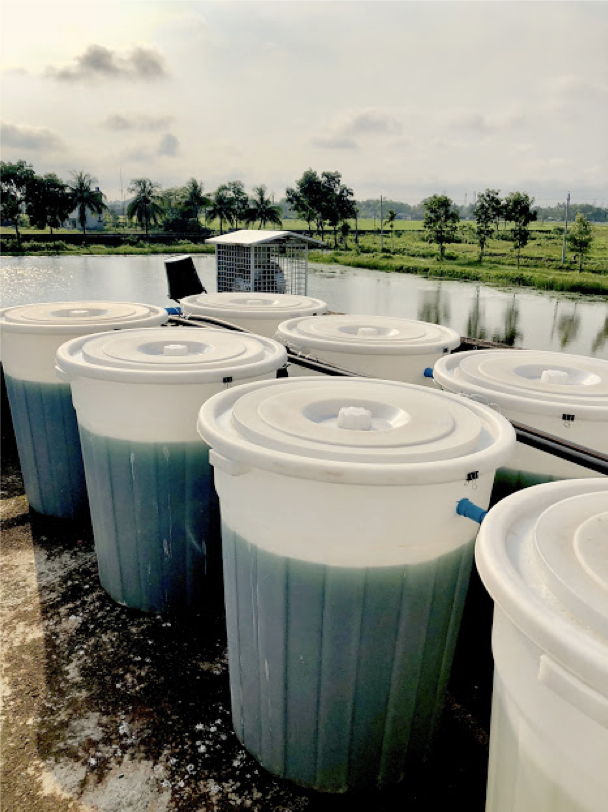
Three Steps to $3 Million
How Winrock is helping jumpstart an edible algae business.
Could algae address the coming food crisis and provide additional income for women? A European investment firm answered that question with a resounding ‘Yes!’ with their $3 million stake into EnerGaia, a spirulina cultivation technology firm based in Thailand and actively supported by USAID’s Feed the Future Asia Innovative Farmers Activity. To bring this critical funding to fruition, the activity worked closely and carefully with EnerGaia through three stages of support: validity, viability and visibility.
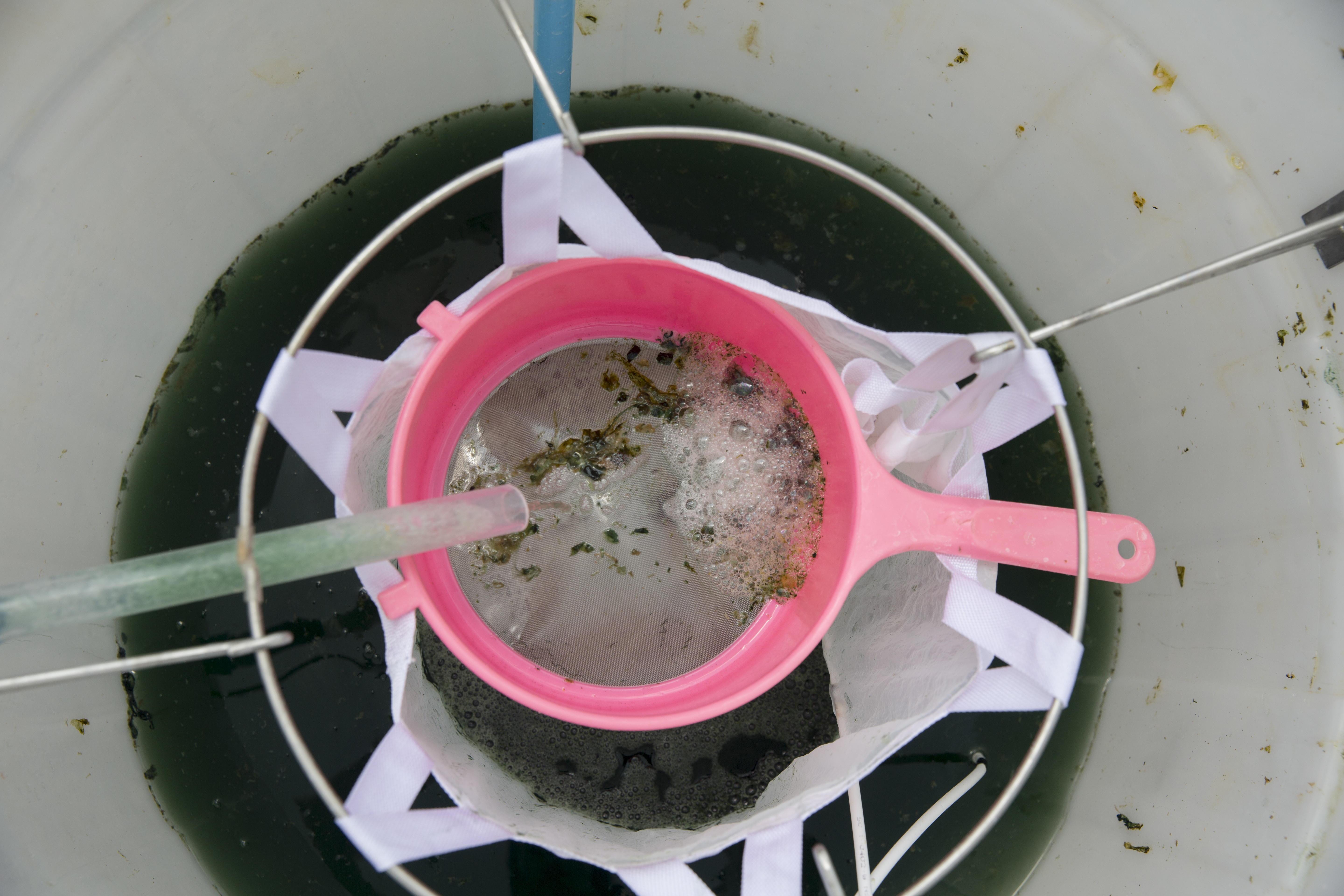
Validity
For all potential technologies under consideration, the activity conducts a validation assessment to ensure that innovations are technically proven and that there is a reasonable business model for adoption. The activity works closely with Kasetsart University in Thailand and their network of regional university partners to conduct these assessments. Spirulina is the dried biomass of a high protein-concentrated algae that can be used for human consumption and animal feed. A single tablespoon contains twice the amount of protein as beef steak, a food that requires significantly more natural resources for production. Spirulina is also rich in magnesium, potassium and iron. Through EnerGaia’s home-based production system, a woman in Bangladesh can earn $1,080 per year (Bangladesh household income per capita was $601 in 2016) from nine hours of work per week. From this assessment, the activity selected EnerGaia as an innovation to support for expansion into Bangladesh.
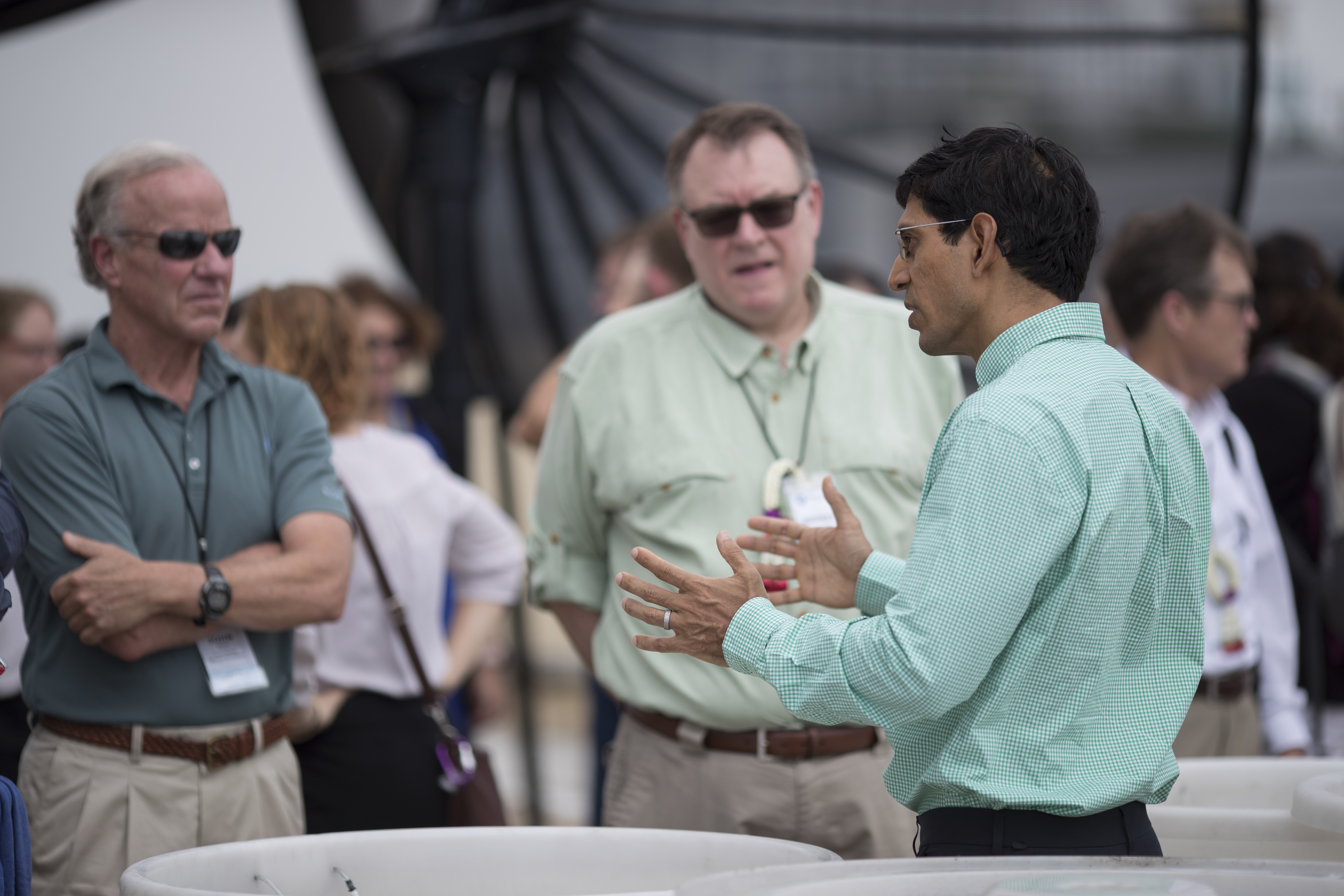
Viability
To attract investment, the activity collaborates with an innovator to demonstrate viability that stands out from the myriad of technologies active in other incubator and accelerator programs. Through Winrock International’s long legacy of work in Bangladesh, the activity was able to engage the broader technology ecosystem to support the transfer of technology from Thailand. Sher-e-Bangla Agricultural University agreed to establish a laboratory to support algae culture development, conduct scientific studies and test potential improvements to yield, such as low-cost wire mesh cages. The activity facilitated the business registration of EnerGaia in Bangladesh, port clearance for an initial shipment of 615 tanks and an agreement with a local firm to oversee the initial distribution to 100 rural women-led households. The activity also collaborated with Bank Asia to establish a microfinance program to enable rural households to acquire the production tanks and initial supply of spirulina culture. The activity recently engaged a commercial organic fertilizer supplier to support EnerGaia’s ambition to produce a completely organic product.
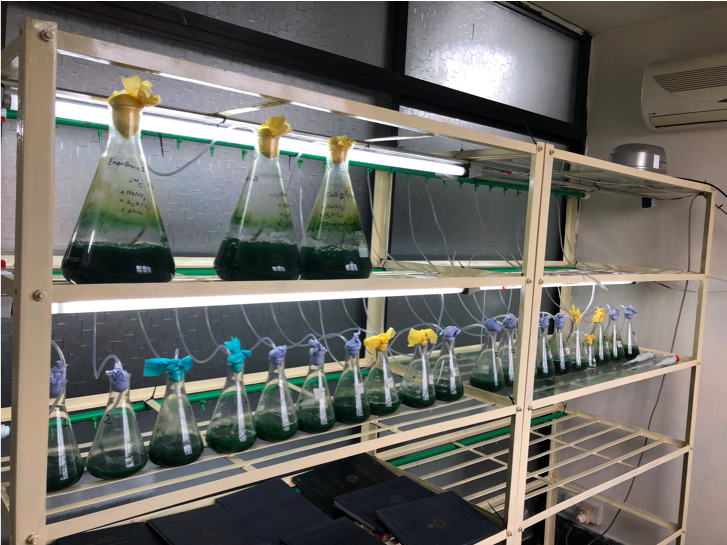
Visibility
With a validated product and a viable market, the activity worked with EnerGaia to increase their visibility to the regional and global investment communities. The activity began this exposure by hosting regional technology forums in Bangladesh, Cambodia, Nepal and Thailand. The activity also leveraged buy-in from the U.S. Department of State to collaborate with Fish 2.0 Global Sustainable Seafood Business Competition, an American-based seafood investment forum held at Stanford University. In this collaboration, an innovation track was established for Southeast Asia technologies with an independent judging panel. This judging panel selected EnerGaia as a winner and provided a global platform for them to share their technology with the wider industry. One of the judges — a European impact investor — contacted the activity to conduct a due diligence of EnerGaia for direct investment. After multiple rounds of dialogue and analysis, the firm is in the processing of making a $3 million investment into EnerGaia with part of the funds being used to facilitate their expansion into Bangladesh. The activity’s past collaboration and ongoing support with EnerGaia was a major factor in making this investment.

With this funding, EnerGaia can confidently move towards their goal of employing thousands of rural women in Bangladesh in the production of spirulina. EnerGaia is also encouraging women to keep a portion of the spirulina for home consumption to provide much needed protein for growing children. Through validity, viability and visibility, USAID’s Feed the Future investment in the Asia Innovative Farmers Activity has attracted private sector investment to continue the expansion and sustainability of a food product vital for the economic and social welfare of rural households.
Related Projects
